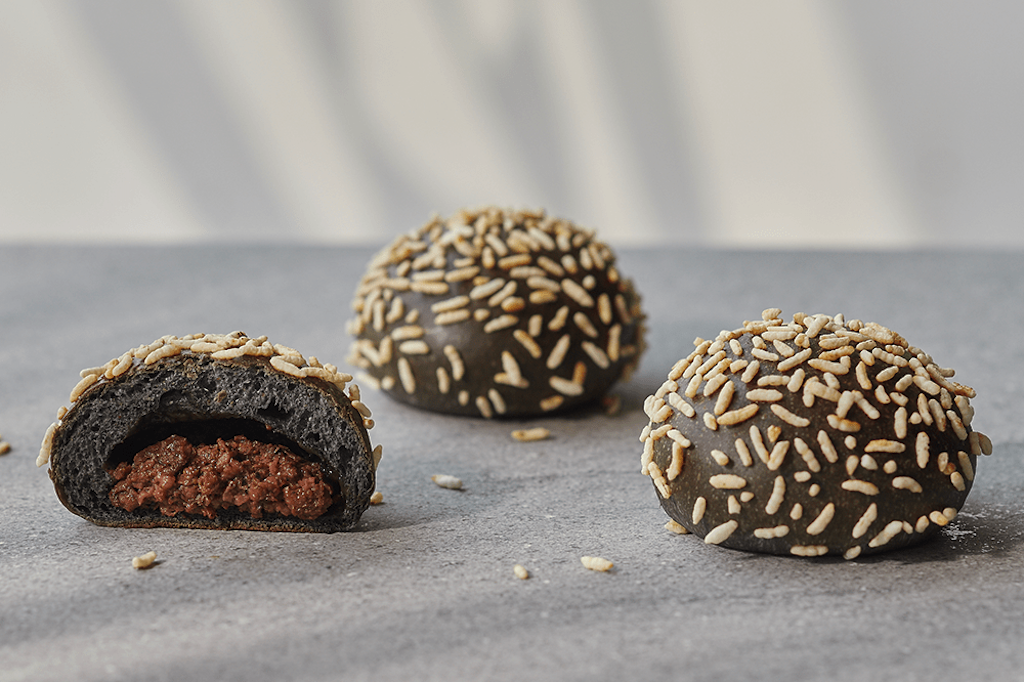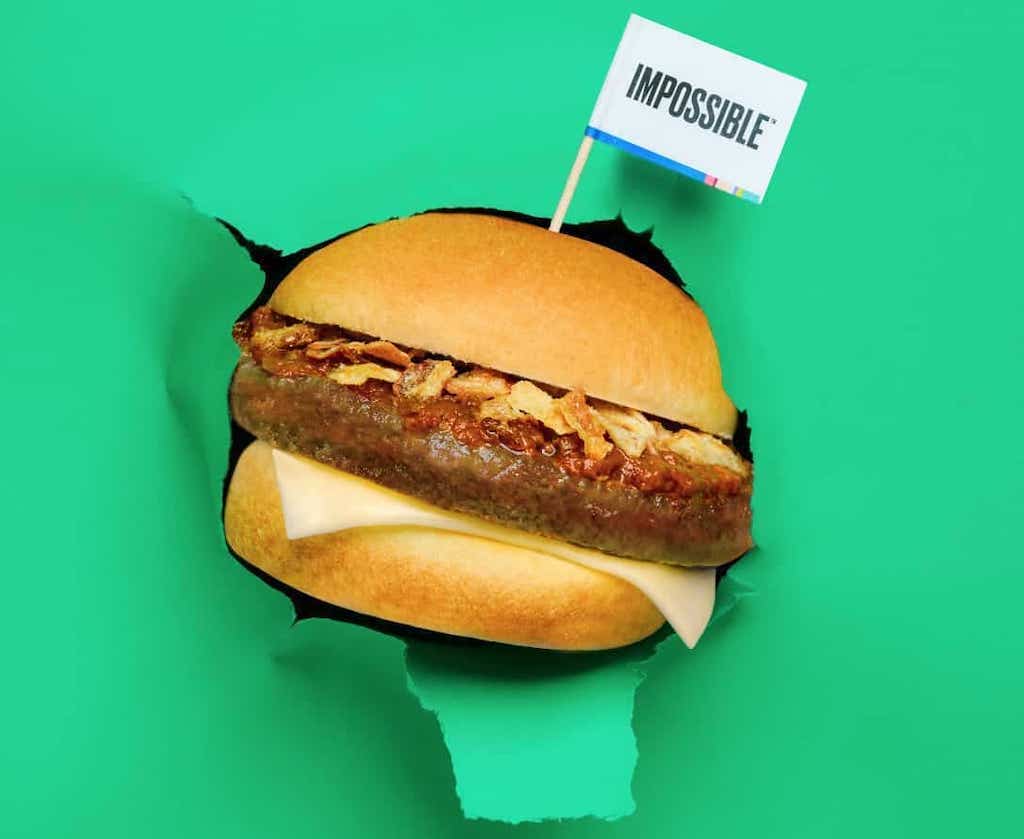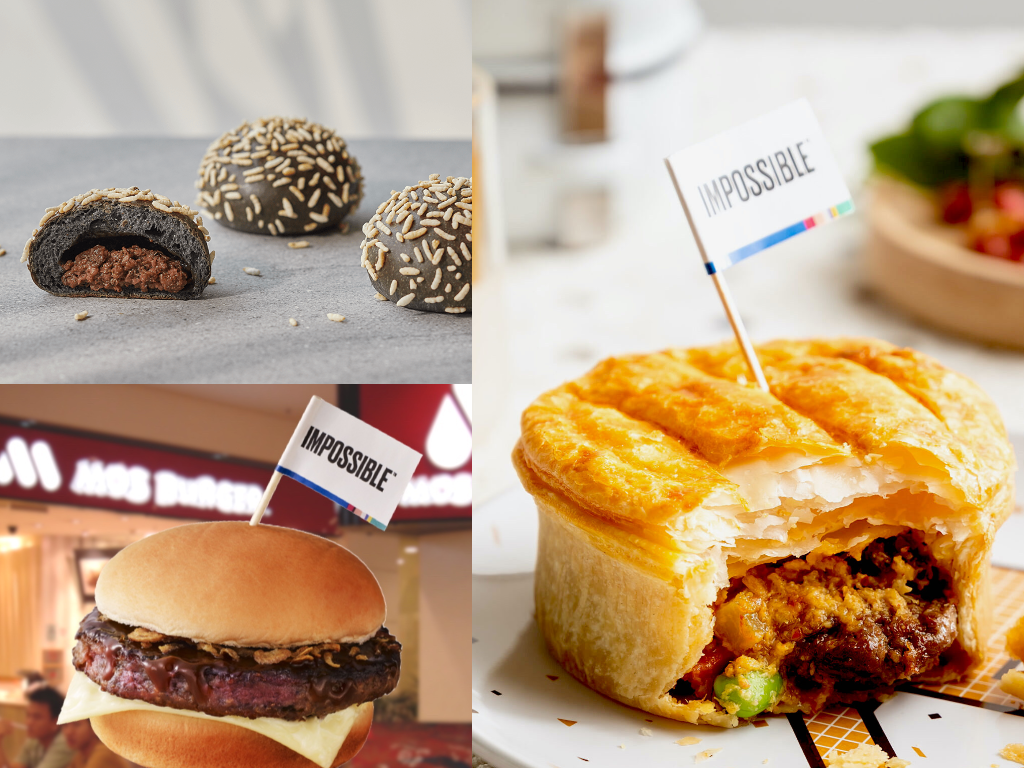3 Mins Read
A line of new foodservice partnerships with Impossible Foods will see multiple dishes made with the famous “bleeding” plant-based meat rolled out across Singapore. From coffee giant Starbucks to fast food chain MOS Burger and bakery shop BreadTalk, residents of the Lion’s City can now enjoy new plant-based Impossible meat creations across nearly 200 in-store locations and through collaborating online delivery platforms as well.
On June 30, Starbucks Singapore introduced a brand new Impossible Rendang Pie (S$8.90 or US$6.38) across its over 140 outlets in the city as a limited-edition vegetarian item until August 11. A locally-inspired twist on a coffee shop classic, Impossible Foods’ plant-based ground beef mince is cooked in a rendang gravy with edamame, potatoes and carrots.
It was announced soon after the coffee behemoth signed a deal with Impossible Foods in the U.S. to begin carrying its vegetarian breakfast sandwiches across almost all of the chain’s 15,200 locations stateside.

Alongside Starbucks, BreadTalk, a Singaporean bakery chain that has branches across Asia, has also launched a new Impossible offering – its first plant-based meat bun. Called the Impossible Pepper (S$2.50 or US$1.79), the Asian-inspired charcoal bun is filled with Impossible meat, cooked in a homemade black pepper sauce and turnips.
Read: Q&A with Impossible Foods’ SVP Nick Halla
Debuted on June 29 across all 13 BreadTalk locations in Singapore, the bakeshop will also be offering their plant-based version of the pork or beef buns – a widely enjoyed Southeast Asian bakery treat – as a bundle deal with in-house freshly made soy milk on their online store and on e-commerce platforms.

Meanwhile, the Japanese fast food chain MOS Burger has been serving up two vegetarian editions of the Impossible Burger across all 40 of its restaurant and café outlets in the city-state from June 24. The Classic Impossible Burger (S$8.35 or US$5.98) features the famous “bleeding” heme-filled patty with sliced dairy cheese, fried onions and a barbecue sauce, while the Pumpkin Mushroom Impossible Burger (S$9.20 or US$6.59) tops the patty with glazed pumpkin slices, a creamy mushroom sauce and dairy cheese.
Not only will MOS Burger offer the new Impossible dishes for dine-in, residents in Singapore can also choose to get the plant-based burgers delivered to their door via the major food delivery operators in the city, including Deliveroo, FoodPanda and GrabFood.
The move follows the burger franchise’s launch of an all-vegan offering on its domestic menu in Japan called the Plant-Based Green Burger, which MOS Burger Japan developed in line with the United Nations Sustainable Development Goals to provide a lower-carbon option for its customers.

Impossible Foods’ three foodservice partnerships were announced as Singapore begins to relax coronavirus “circuit breaker” restrictions. During the lockdown period, Impossible Foods allowed its Singapore distributors and restaurant partners to resell their stock of its plant-based meat to consumers while dine-in traffic came to a standstill.
For major F&B chains to roll out plant-based menu items while lockdowns continue to ease is a sign that the demand in Singapore is growing, no doubt prompted by greater food safety, health and sustainability concerns as a result of the pandemic.
The trend is consistent across the world, with polls conducted in the U.S. to Hong Kong and the U.K. finding that shoppers are more willing to opt for meat alternatives and dramatically reduce their consumption of animal meat as a direct result of the crisis – a trend that Impossible Foods’ founder and CEO Pat Brown believes will wipe out the meat industry in the coming decades.
Lead image courtesy of Starbucks / MOS Burger / BreadTalk / designed by Green Queen Media.




